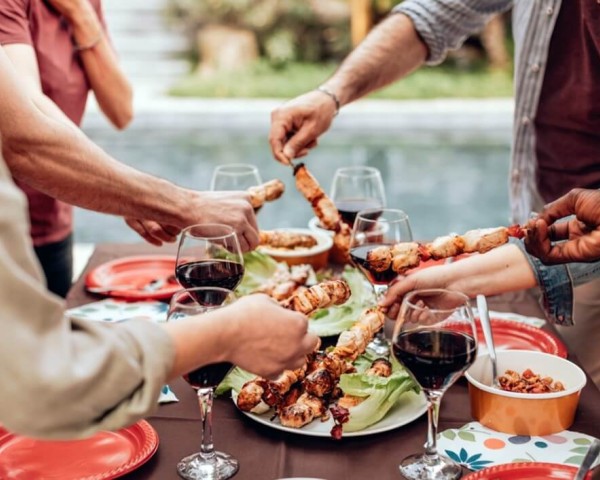Gastronomy is a key factor in the competitiveness and sustainability of tourist destinations and, as such, should be promoted by national destinations. This is revealed by the IV Study of Gastronomic Tourism Demand in Spain, prepared by the tourism consultancy Dinamiza.
Numerous indicators have been analyzed in a study carried out on the basis of more than 1,000 surveys of travelers from all over Spain, providing highly relevant data that indicate the growing importance of gastronomic tourism in the country, as well as the different keys to the behavior, motivations and preferences of culinary travelers.
The first data provided by the study reflects the growth in the demand for gastronomic tourism, which has been reinforced after the pandemic: 86.5% of Spanish travelers say they have taken at least one trip or getaway of a gastronomic nature in the last two years.
This figure is the highest in the historical series and confirms the growing interest in gastronomy in domestic travel. In addition, 20.5% of frequent domestic travelers can be considered pure gastronomic tourists, i.e., this implies that one in five tourists selects their destination and travels with the main motivation of enjoying gastronomy and carrying out different gastronomic activities.
The Gastronomic Traveler, a High-value Segment
The report highlights that gastronomic travelers are a very interesting segment for any destination, as they spend 30% more in restaurants and other gastronomic activities than general tourists.
In addition, they travel more and more frequently and do so at different times of the year, thus contributing to the deseasonalization of tourism activity. Also defining this type of tourist is the great diversity of gastronomic activities that they carry out on their trips, such as: visits to wineries and gastronomic markets, consumption in different types of restaurants, the purchase of local products or participation in gastronomic events.
The type of gastronomic activities carried out varies from one profile of gastronomic tourists to another: cook, foodie, sybarite, gourmet, wine lover, cosmopolitan, gourmand and responsible.
Quality Attributes of a Gastronomic Destination.
According to data from the study, for domestic travelers a good gastronomic destination must have:
- a unique gastronomy and a story of its own (60.9%);
- a quality restaurant offer (49.1%);
- the possibility of visiting local producers (47.5%);
- buying local products in markets, stores and gastronomic fairs (47.5%);
- the existence of quality products with Denomination of Origin or Protected Geographical Indication (41.4%);
- and streets with a gastronomic atmosphere (39.2%).
In relation to the restaurant offer, traditional establishments continue to be the preferred option for gastronomic travelers, although they increasingly value more innovative proposals such as gastrobars and restaurants with distinctions in prestigious guides (Michelin, Repsol, etc.).
Gastronomy has a very positive impact on the dynamization of destinations that have made a firm commitment to this type of tourism, structuring and developing a competitive food and wine offer from the source to the table, in line with the principles of sustainability and adapted to the needs of this type of traveler.
The Gastronomic Travel Cycle
On the other hand, the results show that the gastronomic tourist is an experienced, demanding and hyper-connected traveler, omnivorous in the search for references, naturally combining traditional sources, such as recommendations from family and friends, with some of the many sources available in the online universe, increasingly using digital channels throughout the travel cycle (inspiration, planning, information, booking, recommendations…).
Ranking of Gastronomic Destinations
In relation to the ranking of the favorite gastronomic destinations of Spanish travelers at the autonomous and provincial level, the Basque Country leads the ranking of the favorite Autonomous Communities, followed by Andalusia and Galicia.
At the provincial level, the favorite destinations are, in this order, Asturias, Gipuzkoa and Coruña.
In the same way, the preferred destinations of the national demand to carry out some of the main gastronomic activities have been studied, in order of greater to lesser importance:
- To go for tapas: Andalusia, the Basque Country and Castile and Leon.
- To eat in good restaurants: Madrid, Basque Country and Catalonia.
- To visit wineries (wine tourism): La Rioja, Castile and Leon and Andalusia.
- To buy local products: Andalusia, Asturias and Galicia.
- To visit gastronomic markets: Madrid, Catalonia and Galicia.
- To participate in gastronomic festivals and events: Galicia, Andalusia and Madrid.
- To buy organic products: Andalusia, Murcia and Catalonia.
- For olive oil tourism: Andalusia, Castilla-La Mancha and Extremadura.
Finally, the document also throws up a set of conclusions that are very useful for improving the competitiveness and sustainability of gastronomic destinations. Firstly, it should be noted that gastronomy and tourism form a binomial that has the capacity to promote a much more sustainable tourism model for destinations and companies.
Gastronomic tourists tend to travel to destinations relatively close to their place of residence, in search of the origin of the products and with an interest in slowly savoring the local cuisine and products, as well as exploring the gastronomic culture of the place, favoring the connection between travelers and the communities visited.
As a result, destination managers have the possibility of developing attractive tourism products based on their gastronomic heritage (their products, traditions and rituals, cuisine, lifestyle, etc.), creating a competitive offer in areas such as olive oil tourism, seafood tourism, Iberian ham and cider tourism, among others.
These types of gastronomic tourism offers, in addition to strengthening the local population’s sense of pride and belonging to their territory, when well developed, create economic activity and new opportunities in the rural environment, as well as supporting traditional trades, small producers and the ways of life associated with the territory, which have been passed down from generation to generation, making gastronomic tourism an authentic element of social cohesion.
To sum up, gastronomic tourism is a firm commitment to a sustainable tourism model with high added value for the host territories.




